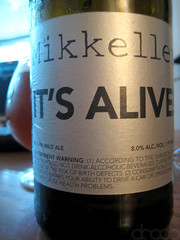I'm talking about hotel stationery.
Back in the day, as the younger kids say, that drawer in the desk in your hotel room often contained several pieces of stationery with the hotel name, address, etc. on it. If it wasn't in the desk drawer, it was perhaps in the binder or folder that was in your room describing all the hotel amenities, typically in the pocket in the front or the back.
The best stationery I can remember often had the hotel name in some fancy typeface... or perhaps embossed into the paper. Sometimes there was a drawing or the logo or branding of the hotel or of the geographic. The companion envelopes were also similarly designed.
In the evening, I'd sometimes write letters back to my wife or to other friends. Mail them off the next day... and very often beat them home so that they'd show up sometime after I'd returned. I didn't do it all that often, but now and then it was something fun to do.
Now, though, in the era of email and Facebook and Skype and Instagram, we as a society pretty much don't write letters any more. Not in our homes... not to our friends... not to our family... and not when traveling. Heck, these days many folks would probably be challenged to even find a stamp in their house if they randomly decided to send off a letter! Plus, they'd have to remember how to write with their hand for more than a few words...
And even in the random hotel that might still have stationery, the process of mailing a letter may be more trouble than it's worth. I remember maybe a year or two ago I tried to send a letter to my kids. I wrote it on the hotel stationery, but when I went to the front desk they (after looking at me as if was from Mars) said they had no stamps but that I could perhaps get them from the hotel gift shop. The shop was closed, though, and I was leaving early in the morning, and so I seem to recall bringing that letter home in my bag. Since that time, on a few random times when I've thought of it, I've not seen any evidence of any stationery anywhere in my rooms.
And so, just like hot meals on airplanes, hotel stationery fades off into memory... a quaint anachronism of a distant era.
As a writer and lover of pens and language, I admit that a part of me does lament the passing. There was something solid about writing letters. Something tangible... something "real." And something fun... since each hotel's stationery was different from that of the others.
'Twas an experience that can't really be replicated in the sterile digital world of 1's and 0's. Sure, we can use funky typefaces and can take photos of where we're at... and don't get me wrong, I love having the real-time updates from my friends and family while I'm away and completely enjoy the video calls back home.
But I can't shake the feeling that in those empty desk drawers we've lost a little something...
Ah, well.
Time to post this to my blog, where it will then go out to Twitter and Facebook and be published in ways we could never have even remotely imagined... back in the days when stationery was all there was...
P.S. And if you are young enough to have perhaps never experienced receiving anything written on stationery, the Wikipedia entry talks a bit about what you missed. :-)
P.P.S. As a bonus, if the word "stationery" falls out of usage, the new generations of kids will never have to be concerned about the difference between "stationEry" (writing materials) and "stationAry" (in a fixed place).
If you found this post interesting or useful, please consider either:
- following me on Twitter;
- adding me to a circle on Google+;
- subscribing to my email newsletter; or
- subscribing to the RSS feed.


